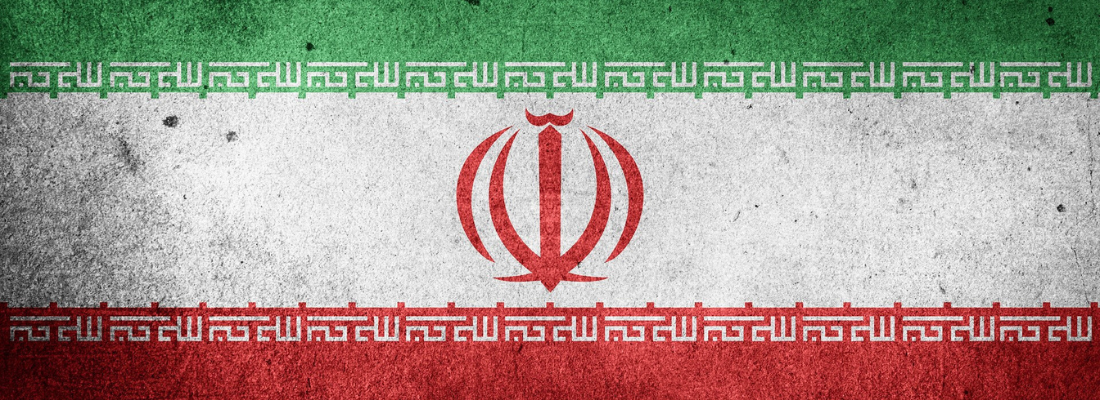IBAHRI urges the Iranian authorities immediately to drop all charges against journalists standing trial
Thursday 1 June 2023

The International Bar Association’s Human Rights Institute (IBAHRI) condemns the prosecution of Iranian journalists Niloofar Hamedi and Elaheh Mohammadi and calls for all charges against them to be dropped. The closed trials of the journalists are reported to have started on 29 and 30 May 2023, respectively. Furthermore, the IBAHRI cites the internationally recognised right of all accused persons to be accorded a fair trial and for the due process of law to be upheld.
Niloofar Hamedi, a journalist for Shargh newspaper and Elaheh Mohammadi, journalist for Ham-Mihan newspaper (both based in Tehran) were detained in September 2022. They were amongst the first to report on the death of 22-year-old Mahsa Amini, who died in police custody just days after she was arrested by Iran’s ‘morality police’ for not wearing her headscarf in a way deemed ‘appropriate’ by them. Ms Amini’s death sparked outrage across the country and led to months of nationwide anti-state protests. Ms Hamedi and Ms Mohammadi are being tried on charges of ‘conspiracy and rebellion against national security’ and ‘anti-state propaganda’, charges that carry the death penalty.
IBAHRI Co-Chair and Immediate Past Secretary General of the Swedish Bar Association, Anne Ramberg Dr Jur hc, commented: ‘Journalists Niloofar Hamedi and Elaheh Mohammadi risked their lives and freedoms to report on the death and funeral of 22-year-old Mahsa Amini. In producing courageous journalism about matters in the public interest in Iran, including the rights of women, they are now facing the full force of an intolerant regime. The IBAHRI urges the Iranian authorities to drop all charges immediately against Ms Hamedi, Ms Mohammadi and other truth-tellers who face malicious prosecutions simply for doing their jobs.’
IBAHRI Director, Baroness Helena Kennedy KC, stated: ‘For too long, Iranian authorities have systematically misused the justice system to prosecute journalists, human rights defenders and protestors. We condemn the unjust prosecution of Niloofar Hamedi and Elaheh Mohammadi simply for doing their jobs and reporting in the public interest. The lack of separation of powers and judicial independence in Iran has sustained the vicious cycle of politicised prosecutions against perceived enemies of the state. It is extremely difficult for legal professionals to ensure their clients – the majority of whom are arbitrarily detained – can access adequate defence. This seriously restricts the ability of defendants to receive and access a fair trial and exposes them to severe sentences based on frivolous proceedings. We demand the immediate release of Ms Hamedi and Ms Mohammadi.’
Both journalists are joint winners of the 2023 UNESCO/Guillermo Cano World Press Freedom Prize (alongside journalist Nargis Mohammadi) as well as the 2023 International Press Freedom Award by Canadian Journalists for Free Expression and Harvard's 2023 Louis M. Lyons Award for Conscience and Integrity in Journalism. They were named as two of Time Magazine’s 100 Most Influential People of 2023.
On 28 October 2022, Iran’s Ministry of Intelligence and the Intelligence Organization of the Islamic Revolutionary Guard Corps issued a joint statement accusing Ms Hamedi and Ms Mohammadi of being ‘foreign agents’ engaged with ‘intelligence agencies […] to carry out serious and uninterrupted planning with the aim of influencing different social layers, especially in areas related to women’.
On 4 February 2023, Iran’s Supreme Leader Ali Khamenei issued pardons and sentence reductions for thousands of people charged or prosecuted for taking part in the protests. However, Ms Hamedi and Ms Mohammadi remain on trial. According to reports, both journalists were ‘inexplicably excluded from the so-called mass pardon’.
According to the families of the two accused women, ‘less than a week’ before their trials neither of the journalists had been given access to the prosecution case file. Social media posts from Ms Hamedi’s husband, Mohammad Hossein Ajorlou, state that neither had been allowed to speak to their lawyer in order to prepare their defence. According to Ms Hamedi’s husband, on the first days of their trials, lawyers were not allowed to defend their clients and family members were not allowed to attend the court.
IBAHRI Co-Chair, Mark Stephens CBE, remarked: ‘Independent media and journalists who report on problematic conditions and oppression in Iran are often accused of being manipulated by foreign forces. The IBAHRI calls on Iran to halt the systemic criminalisation of citizens merely exercising their right to freedom of expression and to protest.’
The latest report from the United Nations Special Rapporteur on the human rights situation in Iran indicates that more than 22,000 people in the country have been arrested during protests, including hundreds of human rights defenders, at least 29 journalists and 53 lawyers. Lawyers who undertake cases involving journalists and other human rights defenders are often threatened and eventually imprisoned for carrying out their professional duties. In addition, judges in Iran are regarded as routinely abusing their legal powers in ‘security-related’ trials such as those involving human rights, political or civil activists.
ENDS
